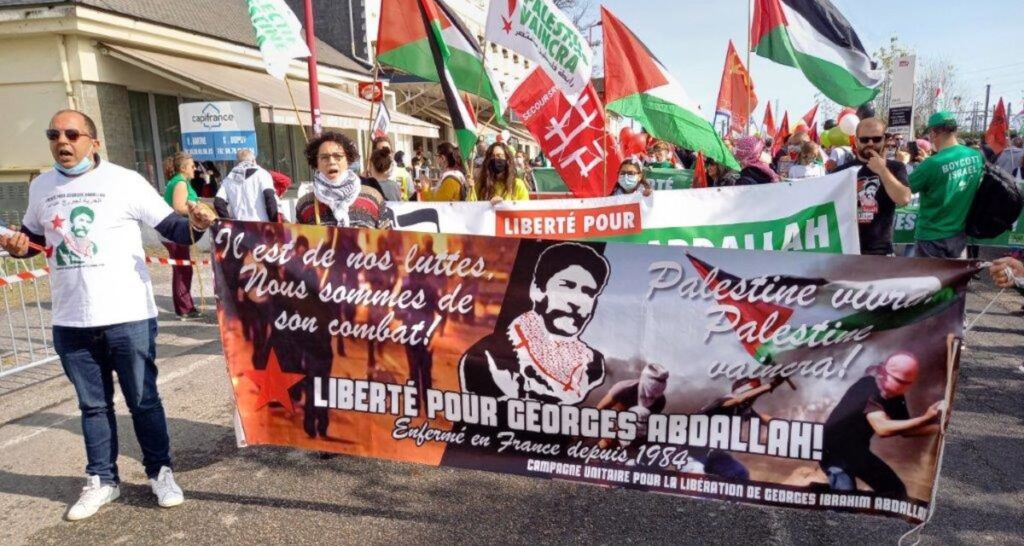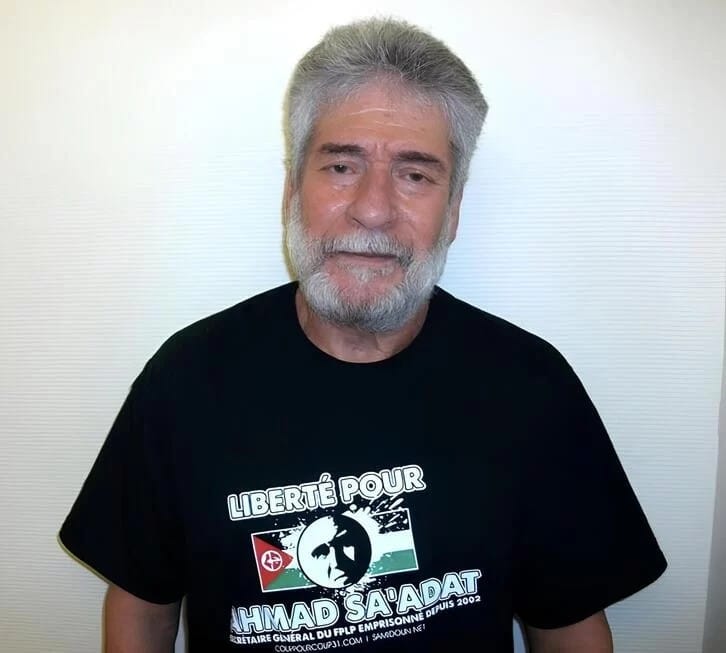On Thursday, the Paris Court of Appeal ordered the release of Lebanese communist and pro-Palestinian activist Georges Ibrahim Abdallah. He had been imprisoned for 40 years, making him the longest-serving prisoner in France. Accused of complicity in the assassination of American and Israeli diplomats by the Lebanese Revolutionary Armed Faction, a group he led, he was sentenced to life in jail in 1987. He was then aged 35.
The activist has been eligible for release for over 25 years, but it took 11 requests for parole to end his detention, deemed by the court to be “disproportionate to the crimes committed”. Abdallah, now 74, will join his family in his village in northern Lebanon on July 25.
“If they have agreed to release me, it's thanks to this rising mobilization,” says the political prisoner in an interview obtained on the day of the announcement by Agence France-Presse. “The release is triggered by a global dynamic: if the political prisoner or activist in prison manages to join the dynamic of struggles outside, it's the mobilization of men and women outside that gets him out,” he adds.
Indeed, the release of Georges Ibrahim Abdallah has been one of the key demands of the pro-Palestinian movement in France and the Middle East since his arrest. On October 24, 2024, 2,000 people gathered outside his prison to demand his release.

Diplomatic pressure
Several French government figures have denounced Abdallah's prolonged incarceration. This is notably the case of Yves Bonnet, former head of France's Direction de la Surveillance du Territoire, an anti-terrorist intelligence service. Far from being a supporter of the Palestinian cause, he says: “This injustice has gone on long enough, it has even exceeded the limits of reasonableness, nothing justifies his incarceration anymore, let's put him on a plane and send him back home to Lebanon.”
On the other side, the Israeli and US governments have consistently pressed for the activist to remain behind bars. In a 2013 telegram revealed by WikiLeaks, US Secretary of State Hillary Clinton wrote to French Minister Laurent Fabius: “He has shown no remorse for his crimes and will likely resume his revolutionary struggle if released and deported to Lebanon.” In the same message, she said she wanted the French government to find a way to render inoperative the release ruling handed down the previous day by the Court of Appeal.
On Thursday, the Israeli embassy said it “regretted” the decision to release Abdallah, asserting that “such terrorists, enemies of the free world, should spend their lives in prison”.
“We are very happy with this decision,” said Georges' brother, Robert Abdallah, in an interview with AFP. “For once, the French authorities have freed themselves from the pressure exerted by Israel and the United States”.
“It's both a judicial victory and a political scandal that he didn't get out sooner, because of the behavior of the United States and all the French presidents,” said the political prisoner's lawyer, Jean-Louis Chalanset.


